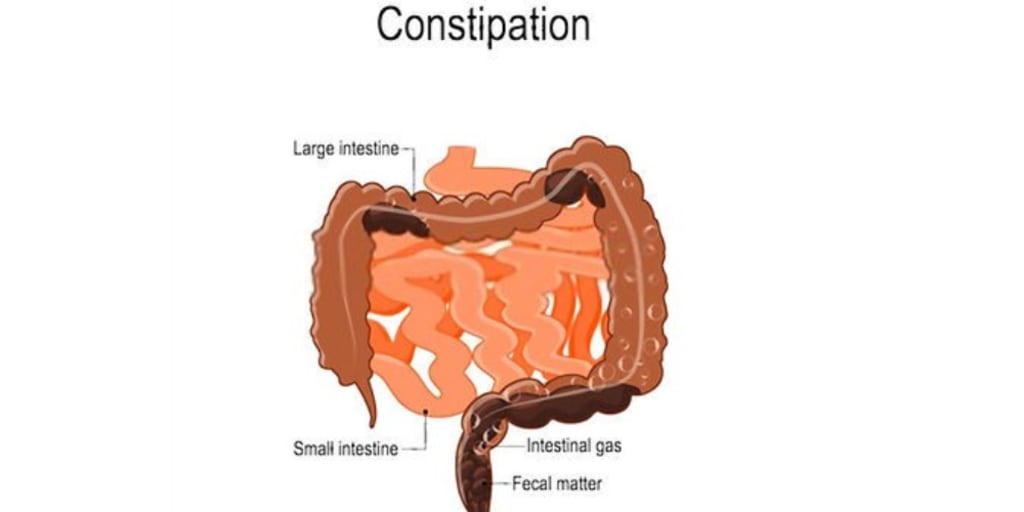Say Goodbye to Constipation: The Ultimate Guide
This guide shows you how to stop constipation. Learn what causes it, what it feels like, and how to treat it. We also give tips to prevent it from happening again. We made this guide for anyone who has constipation sometimes or always. By using the information in this guide, you can take control of your digestion and feel better.

Definition of constipation
Constipation is a common problem that makes it difficult to poop. In this condition, the colon absorbs too much water from food waste, causing the stool to be stiff and dry.
Understanding the Causes of Constipation
A diet low in fiber: consuming foods that are high in fiber can help promote regular bowel movements. Fiber helps to add bulk to stools, making them easier to pass. A diet low in fruits, vegetables, whole grains, and other high-fiber foods can contribute to constipation.
Lack of physical activity: Not getting enough physical activity can lead to constipation. Prolonged sitting slows digestion and causes irregular bowel movements. Also, moving around can help prevent this. Regular exercise can help keep the body moving and prevent constipation. Exercise daily to have regular bowel movements.
Certain medications: Some medications can cause constipation as a side effect, such as painkillers, antidepressants, and iron supplements.
Medical conditions can cause constipation. Some examples include irritable bowel syndrome, hypothyroidism, diabetes, and Parkinson’s disease. Consult a doctor if you have constipation or a medical condition. They can help you identify the underlying cause and develop a treatment plan. Medications may be necessary to help a person with constipation.
Nervous system disorders, such as Parkinson’s disease. Parkinson's disease affects gut muscles, slowing digestion and causing constipation. So, working with a healthcare provider to manage this symptom is important.
Dehydration: Water is essential for the proper functioning of the digestive system. Without enough water, stools can become difficult to pass.
Pregnancy: Constipation is common during pregnancy due to hormone changes. Also, the uterus grows and puts pressure on the rectum and intestines, making it harder to pass stools.
Ageing: As people age, muscles weaken, slowing digestion. Also, older adults may take more medication, which can cause constipation.
Stress or anxiety: Anxiety can lead to digestive problems, including constipation. Stress can also affect the muscles in the gut, which can make digestion more difficult.
It is important to note that constipation can also be caused by a combination of these factors.
Recognizing the Symptoms of Constipation
A few common symptoms can be used to identify it.
1. Infrequent Bowel Movements: Constipation is common and has signs like having fewer than 3 bowel movements per week. This means the body struggles to pass stools, and stools are difficult to pass.
2. Straining to Pass Stools: When constipation is present, a person may feel the need to exert force when trying to pass stools. This can be due to the stools being dry and hard, making them difficult to pass. Straining can also cause abdominal discomfort, especially if it is overdone.
3. Abdominal Discomfort: Constipation causes not only discomfort but also belly pain. This can range from mild to severe, depending on the severity of constipation. It can also be accompanied by cramping, bloating, and gas.
4. Difficult and Dry Stools: Constipation is frequently accompanied by difficult, dry stools. These can be difficult to pass and may be a sign of poor water absorption in the intestine. Also, this symptom may be associated with frequent straining during bowel movements.
5. Decreased Appetite: Constipation can make you lose your appetite. When your stomach hurts, and it’s difficult to get to the bathroom, you may not want to eat. This can lead to weight loss and can be a sign that constipation is present.
6. Changes in Bowel Habits: Constipation can change bowel habits. This may lead to sudden urges to go to the bathroom or needing to relieve yourself before the stool becomes too difficult.
Everyone’s digestion is unique. Constipation can vary from person to person. Consult a doctor if you have doubts or questions about your bowel habits or digestion.
Conventional Treatments for Constipation
Laxatives: Laxatives help with bowel movements and make passing stools easy. They come in many forms, like tablets, capsules, liquids, suppositories, and enemas. Different types of laxatives include bulk-forming agents, lubricants, stool softeners, osmotic, and stimulants. Each type works. It’s important to talk to a healthcare professional before taking any laxatives.
Fiber supplements: Add fiber supplements such as psyllium, methyl-cellulose, or a polycarbophil diet. They increase bulk and ease the passing of stools by absorbing water and adding bulk to the stool. Thus, they regulate bowel movements.
Enemas: Enemas are a laxative used to flush out the lower colon. A solution is inserted into the rectum and colon to stimulate bowel movements. They are prescribed for serious constipation or after surgery on the rectum or colon.
Other medications: Medications like dinucleotide and lubiprostone can help with constipation. They work by adding fluid to the gut and making bowel movements happen. But, it’s important to take them under a healthcare professional’s guidance.
Natural and Home Remedies for Constipation
A. Hydration: Drinking plenty of water is essential for preventing and treating constipation. It helps to keep the stool soft and hydrated, making it easier to pass. Drink at least 8 glasses of water each day.
B. Exercise: Regular physical activity can help to stimulate the muscles in the colon and rectum, which can aid in bowel movements. You should exercise at least 30 minutes per day at a moderate intensity.
C. Fiber-rich foods: Eating foods that are high in fiber can help add bulk to the stool, making it easier to pass. Fiber-rich sources of fiber include fruits, vegetables, whole grains, and legumes.
D. Probiotics: Probiotics are beneficial bacteria that live in the gut and can help to regulate bowel movements. Probiotic foods include yogurt, kefir, sauerkraut, and kimchi.
E. Herbs and supplements: Herbs and supplements like psyllium husk, flaxseed, and aloe vera can help ease constipation. But first, talk to a doctor before taking any supplements. They may react with other medicines or have side effects.
Preventing Constipation
1. Eat fiber-rich foods: Eating adequate amounts of fiber is essential for preventing constipation. Firebrick sources of fiber include whole grains, fruits, vegetables, legumes, nuts, and seeds. In general, adults should aim to consume 25 to 30 grams of fiber per day.
2. Stay hydrated: Drinking plenty of fluids helps to keep the stool soft and easy to pass. The Institute suggests adult women drink 91 ounces (2.7 liters) a day and adult men consume 125 ounces (3.7 liters) daily.
3. Exercise regularly: Regular physical activity helps keep the digestive system functioning properly. Most days of the week, try to get at least 30 minutes of moderate exercise.
4. Avoid processed foods: These foods are low in fibre and can make constipation worse. Healthy eating can prevent the overconsumption of processed foods.
5. Limit caffeine and alcohol: Both caffeine and alcohol can cause dehydration, which can make constipation worse. Limiting your intake of these substances can help reduce the risk of constipation.
6. Take probiotics: Probiotics are beneficial bacteria that can help promote digestive health. Probiotics in foods like yogurt and sauerkraut or supplements can help ease constipation.
7. Take laxatives: If lifestyle changes are not enough, a laxative may be necessary. It is important to discuss your laxative needs with your pharmacist or doctor.
Constipation is common. But you can avoid it by making simple changes to your diet and lifestyle. Avoid processed foods, drink plenty of water, exercise, and take probiotics and laxatives as needed. Also, try to reduce stress. It can help prevent constipation. Take control of your digestion by following these tips.
Conclusion
Constipation is a problem for many. But you can fix it by making changes to your diet and lifestyle. Eat more fibre, drink more water, exercise, and manage stress. Also, talk to a doctor and try over-the-counter remedies if needed. Eating well, staying hydrated, and exercising can also prevent constipation. Take control of your digestive health with the tips in this guide.





Comments
There are no comments for this story
Be the first to respond and start the conversation.